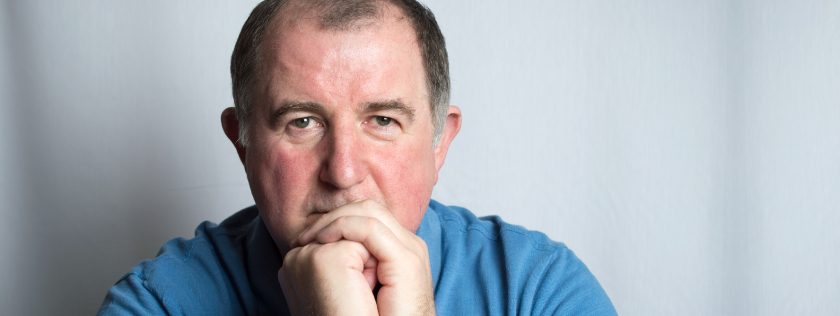Brain Injury, Lockdown and Beyond

Client perspectives with some unexpected outcomes
The Covid-19 pandemic has brought a variety of challenges to us all. Life has significantly changed with great uncertainty on how we can return to normality.
Case Management Services (CMS) has continued working with clients, their families and care staff during this crisis. Our main role has been to support them to make adjustments to the care they receive and rehabilitation, adapt to the restrictions of lockdown, cope with social isolation and find creative and alternative ways to achieve sometimes the simplest of tasks.
This has without question been a challenging experience for everyone. For those with a brain injury, they’re family and support team there have been unexpected highs and lows.
Here is a snapshot of different client perspectives and experiences on how they are coping and adapting to lockdown and beyond.
“Yes, we agree you are at risk but…”
For clients with significant cognitive difficulties understanding what is happening and why their life is now restricted is very difficult.
Kevin is an elderly man in his 70’s who lacks capacity. Pre-lockdown he was supported in his own home with a routine of daily activities.
Today, his life is very different with a sharp decline in his physical and mental health. His support package is now limited to essential duties and this has left him unsupported for lengthy periods. His usual social supports have gone but he has found new “drinking buddies”. Kevin is delighted that his home is now the new local “pub”.
Despite, repeated training, he does not understand the need for social distancing, hand washing and believes there is no virus.
He is undoubtedly highly vulnerable, a risk to himself and his support team but how do you reduce and manage these risks during lockdown with limited access to care and support services.
This scenario and the associated dilemmas are currently being addressed by many relatives and professionals who work in community settings.
There are no easy solutions other than close monitoring, crisis management (sometimes on a daily basis) and be prepared to quickly source additional support as lockdown eases.
“Lockdown is great, I’ve been in training for this since I had my brain injury”
Social distancing and enforced restrictions for some have allowed time for self-reflection and for the world to move at a pace they can cope with.
Alice sustained a brain injury 3 years ago and lives with her partner. She has input from a support worker daily and an active weekly schedule of activities.
She struggles with managing her fatigue, socialising and what she describes as “meeting everyone else’s expectations of what I should do”.
Alice is loving lockdown and the enforced social distancing it has brought. She feels that the world is now moving at her pace. She no longer feels the pressure of having to “be busy” “be productive” “have goals”.
Working with Alice during lockdown has highlighted to her and her therapy team that sometimes it is helpful to stop, pause and take stock. Alice is now working with the case manager to review her care needs and agree steps on how best to restart rehabilitation, albeit at a slower pace.
“I hate admitting this, but I need help”
For some lockdown has amplified aspects of their life which have changed since injury. This is an uncomfortable truth.
Scott is 45 years old, he is wheelchair dependent, has a mild brain injury and lives at home with his 2 teenage sons.
Scott has always been a very determined and independent man who is very focused on improving his physical function. He does not feel that his brain injury impacts his day to day life or that he would benefit from additional support.
However, lockdown has brought a new set of challenges and uncomfortable truths for Scott to deal with. He is now very limited in the fitness activities he previously enjoyed, he has two teenage boys at home whom he has to home school and his support staff are now restricted to essential duties.
This combination of social isolation, increased physical and cognitive demands now placed on him with his two sons at home and reduced support has highlighted difficulties, which he has always tried to mask.
With support from his case manager Scott is now working online with a psychologist to put in place strategies to help improve his mood, fatigue and set up compensatory strategies to make his life easier. He feels he has entered a new stage in his recovery.
“I am feeling lost and out of control”
Lockdown has resulted in a loss of services and rehabilitation input for many, which is turn has disrupted daily routines.
For Mark, the loss of regular contact with his therapy team resulted in the disruption of his well-established routine.
This in turn led to a deterioration in his sleep pattern and mood. He also became anxious that his recovery was now on hold, he felt panicked as events were happening around him that were beyond his control and he began rethinking about the accident which caused his brain injury and what he is now unable to do.
With guidance from his case manager and psychologist he has been able to revise his goals and set up a weekly routine accessing online brain training, social media, physical exercise and learning new skills. He feels is now back on track and in control.
“You think lockdown is traumatic, you try living with a brain injury”
For some lockdown has provided a unique opportunity to find a new sense of self and purpose.
After sustaining a brain injury several years ago, Raymond struggled to cope with the change in his role within the family.
He was no longer the bread winner, he was reliant on others and this significantly impacted how he viewed himself and his relationship with his family and friends.
However, lockdown provided a unique situation where he has been able to redefine himself and support others who have struggled with adapting to change. As his wife is working long hours Raymond took on the challenge of home schooling, keeping two young children entertained and running the family home.
This was challenging in the beginning but with guidance from his case manager he is working to establish a new daily schedule of activities and create rehabilitation tasks which can be done with the children.
His confidence has improved and he is now willing to try new skills such as cooking, using technology to video conference. Through this he is now in contact with friends and family teaching them anxiety management techniques.
For Raymond lockdown has provided him with an unexpected opportunity to enjoy spending time with his family, appreciate his own resilience skills and redefine his role to become someone he values.
The above are some of the themes expressed by our clients and their families during this difficult time. Coping with the day to day challenges of having a brain injury during lockdown does present some unique challenges but I imagine that everyone has experienced to some degree similar issues and fears of their own over the last few months.
This may have been adapting to a forced change, appreciating the value of pausing to revaluate your priorities, stepping out of your comfort zone to learn new skills, drinking or eating too much or being able to admit that you are not superman or superwoman and it is okay to ask for help.
Going forward we will all have more challenges and adaptations to make as we begin to restart many aspects of our lives.
This is daunting but working alongside our brain injured clients over this period has reinforced to me that change can be good, we are all capable of doing more than we think and with support and some creative thinking no problem is too great to solve.
Michaela McGowan
Case Management Services
